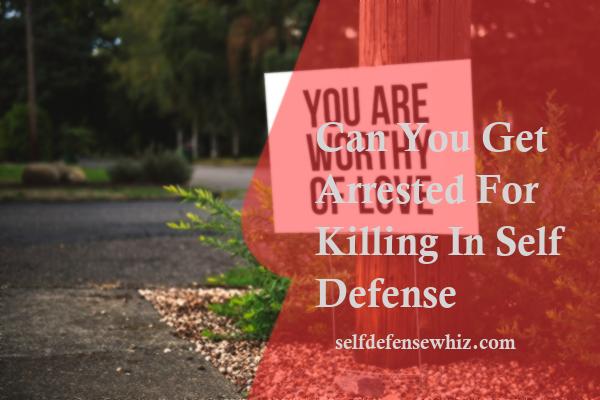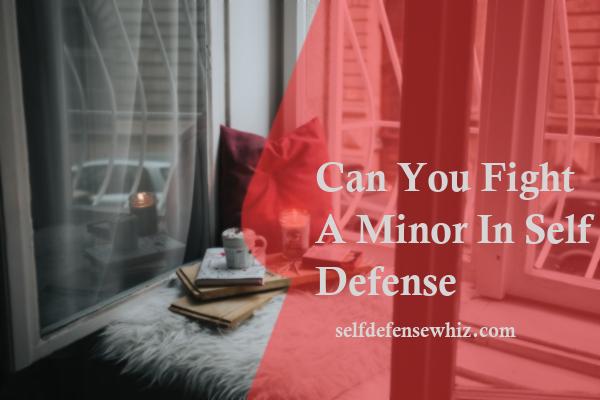Can You Get Arrested For Killing In Self Defense
Can you get arrested for killing in self-defense? This is a question that often sparks debate and raises ethical dilemmas. The concept of self-defense is rooted in the basic human instinct to protect oneself from harm. However, the justification for taking someone’s life, even in self-defense, is a complex legal issue that varies across jurisdictions. **The short answer is, yes, it is possible to get arrested for killing in self-defense**, but whether or not it leads to charges or conviction depends on a multitude of factors, such as the specific circumstances, applicable laws, and the interpretation of those laws by the authorities and the court.
Can You Get Arrested For Killing In Self Defense
In general, the act of killing someone in self-defense is justified and individuals may not be arrested or charged with a crime. Self-defense laws vary across countries, but many of them recognize the right to protect oneself from imminent danger. However, it is essential to understand that there are specific elements that must be present in order for the use of lethal force to be considered self-defense and not a criminal act.
First and foremost, the use of force must be necessary to defend oneself from an immediate threat of death or serious bodily harm. It should be proportionate to the perceived threat, meaning that the amount of force used must not exceed what is reasonably required to neutralize the danger. Additionally, one must have a genuine belief that their life is in danger, and there should be no reasonable opportunity for retreat or escape.
However, it is crucial to emphasize that law enforcement authorities may still arrest someone who claims self-defense, based on the circumstances surrounding the incident. They have the duty to investigate the situation thoroughly to determine if the use of lethal force was indeed justified. This investigation may involve gathering evidence, interviewing witnesses, and evaluating the reasonableness of the person’s belief. Ultimately, it is up to the prosecutors to decide whether charges should be filed or if the act falls within the boundaries of self-defense.
Pro Tip: If you ever find yourself in a situation where the use of force may be necessary for self-defense, it is crucial to remember the following:
– Understand the self-defense laws in your jurisdiction and familiarize yourself with the requirements and limitations. – If possible, try to deescalate the situation and seek an alternative to using lethal force. – If you must use force, be prepared to explain and justify your actions to law enforcement officers. – Cooperate fully with the authorities during the investigation and seek legal counsel to ensure your rights are protected.In conclusion, while it is generally acceptable to use lethal force in self-defense, the specific circumstances surrounding the incident will determine whether an arrest is made or charges are filed. It is crucial to adhere to the principles of proportionality, necessity, and genuine belief in order to justify the act of killing in self-defense. The decision may be subject to scrutiny and legal review to verify the validity of the claim.
What Is The Legal Definition Of Self-Defense?
In many jurisdictions around the world, the concept of self-defense is recognized as a legal justification for killing another person. However, it is crucial to understand that even if one acts in self-defense, they may still be subject to arrest and investigation. The reason for this is that the police and legal authorities have the responsibility to thoroughly examine any incident involving the use of lethal force, even if it is claimed to be in self-defense.
When a person is arrested for killing in self-defense, it does not necessarily mean they will be charged or convicted. Instead, the arrest serves as a mechanism for initiating a formal investigation to gather evidence, interview witnesses, and determine whether the act was indeed justified. The individual may then have to prove that they reasonably believed their life was in imminent danger or that they were at risk of serious bodily harm, depending on the legal criteria established within their jurisdiction.
The outcome of the investigation and subsequent legal proceedings can vary depending on several factors, such as the specific circumstances of the incident, the applicable laws, and the discretion of law enforcement and prosecutors. In some cases, after a thorough review, it may be determined that the use of lethal force was justified, resulting in no charges or with charges being dismissed. However, in other cases, if the evidence suggests that the act was not a legitimate act of self-defense, the individual may be charged with manslaughter, murder, or other relevant offenses.
What Are The Criteria For Justifiable Homicide In Self-Defense?
Whether a person can get arrested for killing in self-defense depends on the jurisdiction and specific circumstances surrounding the incident. In many legal systems, self-defense is a recognized defense, allowing individuals to use necessary and proportionate force to protect themselves from imminent harm or death. However, the application of self-defense laws can be complex and subjective.
Typically, the individual claiming self-defense must reasonably believe that they were in immediate danger and that the force used was necessary to prevent harm. The level of force deemed acceptable may vary depending on the jurisdiction, with some requiring individuals to first attempt to retreat or flee if possible. Additionally, the force used must generally be proportional to the threat faced. If self-defense is successfully proven, the individual may avoid arrest or be acquitted if already arrested.
However, it is important to note that self-defense claims can still lead to arrest and criminal charges in certain circumstances. Law enforcement authorities may initially arrest a person involved in a killing to investigate the circumstances and collect evidence to determine whether self-defense was justified. The decision to press charges ultimately lies with the prosecuting attorney, who evaluates the available evidence and applicable laws. If the prosecutor believes that the evidence does not support a valid self-defense claim, they may proceed with charging the individual and the case will be decided in court.
Can You Be Arrested For Killing In Self-Defense?
Whether or not a person can be arrested for killing in self-defense depends on the specific circumstances and the laws of the jurisdiction in which the incident takes place. In many jurisdictions, there are legal provisions that allow individuals to use reasonable force, including deadly force, to protect themselves from imminent harm. This is commonly known as the principle of self-defense, which holds that a person has the right to defend themselves with proportionate force when faced with a real and immediate threat to their life or safety.
However, the key element in claiming self-defense is the presence of a genuine belief in the need to use force as a means of self-protection. To avoid being arrested or charged, it is vital that the actions taken were in response to a reasonable perception of danger. This requires a careful assessment of the specific circumstances, such as if the person reasonably believed they were in immediate danger of death or serious bodily harm and whether the force used was proportional to the threat faced.
It is also important to note that even if an arrest occurs in a self-defense situation, it does not automatically result in a conviction. Once the matter goes to court, the accused can present evidence and arguments to establish their claim of self-defense. The court will carefully evaluate the circumstances and the reasonableness of the individual’s actions, potentially leading to the dismissal of charges or an acquittal if self-defense is deemed justified.
What Factors Are Considered When Determining If A Killing Was In Self-Defense?
In many jurisdictions around the world, the concept of self-defense is recognized as a valid legal defense against criminal charges, including homicide. The premise of this defense is that individuals have the right to protect themselves from imminent harm or threat to their life or physical well-being. When a person takes another individual’s life under circumstances where they reasonably believed their own life was in danger, it can be considered as justifiable homicide or killing in self-defense.
However, the situation surrounding killing in self-defense can be complex and subject to interpretation by law enforcement officials and the courts. The individual claiming self-defense must demonstrate that they acted reasonably and proportionately in response to an immediate threat. Factors such as the nature of the threat, the availability of alternative courses of action, and the individual’s state of mind at the time of the incident will all be assessed in determining the legality of the act.
Moreover, even if the killing is deemed justifiable, individuals may still face the risk of being arrested. This is because law enforcement authorities have an obligation to conduct a thorough investigation to ensure that the claim of self-defense is genuine and not a cover-up for a malicious act. A proper investigation is necessary to collect evidence, interview witnesses, and assess the circumstances surrounding the incident before a decision on whether to press charges is made. These investigations may temporarily disrupt one’s life by leading to detention or arrest, but they are essential in ensuring that justice is served.
How Does The Stand Your Ground Law Affect Self-Defense Cases?
When it comes to self-defense, the laws can vary depending on the country and jurisdiction. In many jurisdictions, self-defense is recognized as a legal right and can serve as a valid defense to a charge of murder or manslaughter. However, even in cases of self-defense, there are certain criteria that need to be met to justify the use of deadly force.
In general, self-defense laws require that the person using force reasonably believed that it was necessary to protect themselves from imminent harm or death. The force used should be proportionate to the threat faced and should be used only as a last resort. This means that if someone is facing a non-lethal attack, using lethal force in response may not be considered justified under self-defense laws.
It is important to note that even if one’s actions are deemed to be in self-defense, the person may still be arrested and detained during the investigation. This is because the initial act may appear to be a crime, and law enforcement authorities have a duty to investigate and determine if self-defense was indeed the motive. The final decision on charges and potential conviction will depend on the evidence presented and the judgment of the court.
Conclusion
In conclusion, determining whether one can get arrested for killing in self-defense is a complex and multifaceted matter. While the concept of self-defense is recognized and protected in various legal systems around the world, each jurisdiction may have different criteria and requirements for claiming this defense. The crucial factor in justifying the use of lethal force in self-defense generally involves establishing a reasonable belief of imminent danger or threat to one’s life or safety. However, individuals must, regardless of the situation, always make efforts to prioritize their personal safety while resorting to lethal force as a last resort. Although some cases may result in arrest initially, a thorough investigation and the presentation of strong evidence supporting self-defense may lead to the charges being dropped or acquittal in a court of law. Ultimately, it is crucial to consult with legal professionals to understand the specific rules and interpretations in your jurisdiction and to act responsibly and diligently to protect yourself and others in emergency situations.







